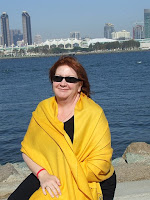So…hospice is a little tricky, psychologically. Timing is everything! When you turn to hospice, you are admitting that the end of your physical life is somewhat imminent and that you do not want to take any extraordinary measures to extend it. You are going to die. Soon. And you are ok (more or less) with the next steps. Not a decision to be considered lightly!
Bill and I were clear with each other that we weren’t ready to give up hope. But, to “understand our options”, we filled our hospice prescription about a month later. As we suspected, we were a bit premature. But, it turns out, there is a step you can take that extends some, but not all of the benefits of hospice. It’s called Palliative Care – think hospice lite. Our experience was brief but positive. I would highly recommend that anyone facing a potentially life threatening illness investigate the services offered by palliative care practitioners in your community.
Our stay in palliative care lasted about a month…until our next clinic visit. By then it was clear that Bill’s ALS had a plan of its own and didn’t really care about our need to get comfortable with the stages of the disease. The palliative care nurse recommended that we contact hospice. It turned out to be the best decision of our lives.
Because it’s scary to admit that death is inevitable, and potentially close at hand, it’s hard to bring hospice into the picture. Typically, the hospice team is brought in during the last stages of the patient’s life, allowing them to die outside of the clinical environment of a hospital, affording comfort and dignity. We filled our prescription and received a perspective on what hospice COULD be.
If the hospice caregivers are brought into the family early on, they have a chance to get to know the patient, the family and gently walk everyone through the process. Not that their job is especially fun, but it isn’t meaningful for them if they are just around to help medicate a patient. They will do it, but optimally, there are lots of resources available which can make the journey much easier for the patient and for the primary caregivers. For example,
- Chaplains can address spiritual needs.
- Social workers can bring in community resources.
- Nurses and medical professionals can baseline vitals and have the difficult end of life discussions at a pace that seems comfortable and respectful.






















.jpeg)


.jpeg)